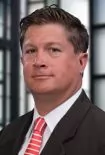Lexington, Ky. (June 26, 2023) – In a recent decision, the Kentucky Supreme Court placed stricter limitations on the opinions that biomechanical engineers may offer at trials in Kentucky courts. Specifically, the published opinion issued in Renot v. Securea, Supreme Ins. Co., 2023 Ky. LEXIS 163, recognizes a new space for the testimony of biomechanics experts – "The Goldilocks Zone."
Where is the Goldilocks Zone?
The Goldilocks Zone is a perfect place in which the proffered testimony is neither too specific such that it wanders into the realm of medical causation, nor too general such that it fails to help a lay jury. Specifically, a biomechanical engineer's expert testimony must be limited to the forces generated by the subject collision, the generally anticipated responses of a hypothetical person's body to those forces, and the range of typical injuries resulting from such forces. Moreover, following Renot, a biomechanical engineer's proffered opinions no longer may enter into the realm of diagnosing a specific medical condition associated with a traumatic injury. Instead, the question of whether a trauma actually caused or exacerbated a plaintiff's injuries falls solely within the purview of a medical doctor.
Implications of the Renot Decision
The Renot decision is likely to have a chilling effect on the use of biomechanical expert testimony at trial, particularly in the near future. We can also expect future cases to challenge and flesh out what testimony reaches the "Goldilocks Zone."
The content of this article is intended to provide a general guide to the subject matter. Specialist advice should be sought about your specific circumstances.
We operate a free-to-view policy, asking only that you register in order to read all of our content. Please login or register to view the rest of this article.



